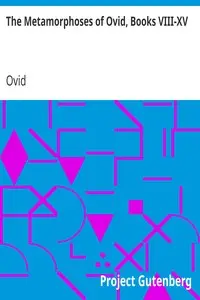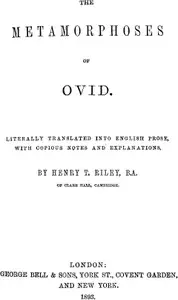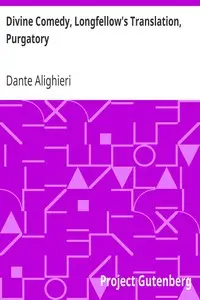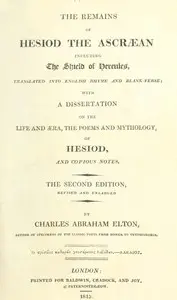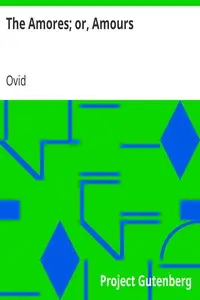** "The Metamorphoses of Publius Ovidus Naso in English Blank Verse Vols. I & II" by Ovid, translated by J.J. Howard, is an epic poem that brings ancient mythological stories to life through a series of transformations and divine encounters. This translation, likely from the early 1800s, starts by calling upon the muses before painting a picture of the world's creation, tracing its downward spiral through the golden, silver, bronze, and iron ages. The poem tells of survivors from a great flood who populate a new Earth and various gods and their roles in the creation. It dives into core themes of love, human nature, and fate, all while capturing the essence of these myths in a way that connects them to the reader’s understanding of the universal human experience. **
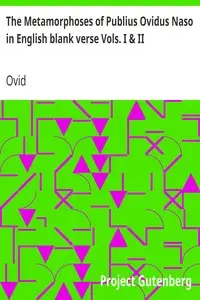
The Metamorphoses of Publius Ovidus Naso in English blank verse Vols. I & II
By Ovid
** Gods and mortals collide in an epic of love, loss, and dramatic changes, reshaping existence in unexpected ways.
Summary
About the AuthorPublius Ovidius Naso, known in English as Ovid, was a Roman poet who lived during the reign of Augustus. He was a younger contemporary of Virgil and Horace, with whom he is often ranked as one of the three canonical poets of Latin literature. The Imperial scholar Quintilian considered him the last of the Latin love elegists. Although Ovid enjoyed enormous popularity during his lifetime, the emperor Augustus exiled him to Tomis, the capital of the newly-organised province of Moesia, on the Black Sea, where he remained for the last nine or ten years of his life. Ovid himself attributed his banishment to a "poem and a mistake", but his reluctance to disclose specifics has resulted in much speculation among scholars.
Publius Ovidius Naso, known in English as Ovid, was a Roman poet who lived during the reign of Augustus. He was a younger contemporary of Virgil and Horace, with whom he is often ranked as one of the three canonical poets of Latin literature. The Imperial scholar Quintilian considered him the last of the Latin love elegists. Although Ovid enjoyed enormous popularity during his lifetime, the emperor Augustus exiled him to Tomis, the capital of the newly-organised province of Moesia, on the Black Sea, where he remained for the last nine or ten years of his life. Ovid himself attributed his banishment to a "poem and a mistake", but his reluctance to disclose specifics has resulted in much speculation among scholars.

